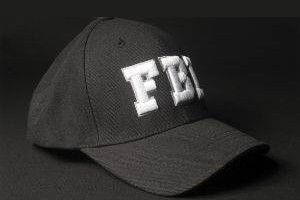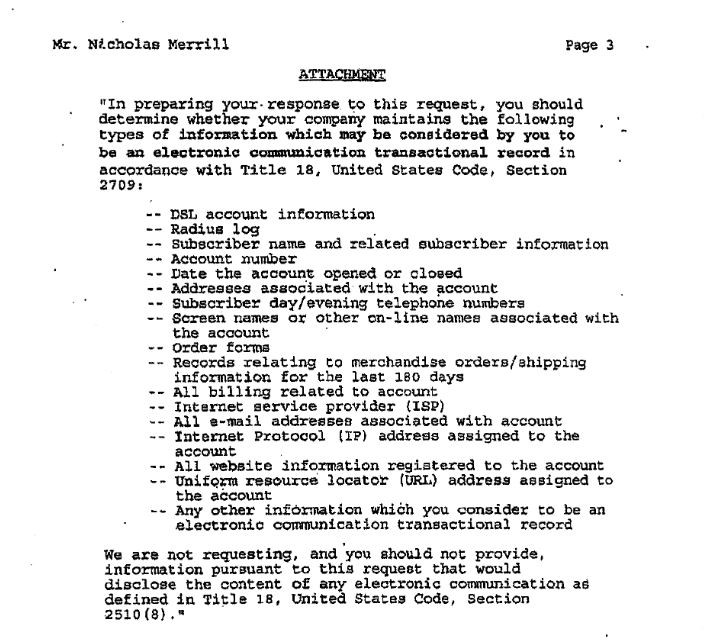Contents of Calyx National Security Letter revealed
After more than a decade of waiting, the unredacted contents of a National Security Letter (NSL) filed by the Federal Bureau of Investigation (FBI) have been made public in court filings surrounding the case of Calyx Internet Access founder Nicholas Merrill who refused to heed the NSL delivered to him 11 years ago.
 Merrill responded in a series of tweets, saying that "The FBI should not be able to silence innocent critics like myself - or hide abuses - simply by saying the magic words 'National Security.'"
Merrill responded in a series of tweets, saying that "The FBI should not be able to silence innocent critics like myself - or hide abuses - simply by saying the magic words 'National Security.'"
And he added that "the FBI shouldn't be allowed to demand private customer records without any suspicion of wrongdoing or without any approval from a court." The American Civil Liberties Union (ACLU) applauded the release of the NSL, which came at the order of U.S. District Judge Victor Marrero and showed that the FBI had the right to obtain a vast amount of information without a warrant, but in a Monday blog post ACLU Deputy Legal Director and Director of Center for Democracy Jameel Jaffer noted, "There's still a lot we don't know about how existing surveillance powers are being used."
Marrero's court in September had ordered the FBI to lift its gag order on Merrill, a computer programmer and executive director of the Calyx Institute, a nonprofit privacy advocacy group, who received the NSL in 2004 and was: "The gag order prevented Nick from disclosing that the FBI had demanded information from Calyx and from explaining his concerns about the FBI's investigation," according to a Monday blog post by tk at the American Civil Liberties Union. "It also prevented him from publicly identifying himself as the recipient of an NSL."
But the September ruling allowed Merrill to fully disclose the personal information the FBI requests in its NSLs. “Judge Marrero's decision vindicates the public's right to know how the FBI uses warrantless surveillance to peer into our digital lives,” Merrill said at the time. “I hope today's victory will finally allow Americans to engage in an informed debate about proper the scope of the government's warrantless surveillance powers.”

But Merrill was told he had to wait 90 days for the order to take effect, to give the government time to file an appeal if it so desired. Monday, the documents were finally released, prompted renewed discussion of government secrecy, particularly in the wake of renewed calls for more government surveillance in the aftermath of the recent Paris attacks. Jaffer wrote that the government had issued hundreds upon hundreds of NSLs after the USA PATRIOT Act took effect post-September 11.
Acknowledging that "time-limited and narrowly cabined gag orders may be justified in truly extraordinary cases," Jaffer said "the FBI has imposed effectively permanent gag orders on tens of thousands of NSL recipients. It has withheld crucial documents about the use of other surveillance authorities. And it has abused the state-secrets privilege to prevent courts from considering whether intrusive surveillance authorities are lawful."
President Obama has sought to curb the secrecy surrounding NSLs. In January 2014 asking the Office of the Director on National Intelligence (DNI) how "to amend how we use National Security Letters so that [their] secrecy will not be indefinite, and will terminate within a fixed time unless the government demonstrates a real need for further secrecy.” And the DNI responded that the gag orders would be capped at three years, noting that "continued nondisclosures orders beyond this period are permitted only if a Special Agent in Charge or a Deputy Assistant Director determines that the statutory standards for nondisclosure continue to be satisfied and that the case agent has justified, in writing, why continued nondisclosure is appropriate."
Axarhöfði 14,
110 Reykjavik, Iceland














